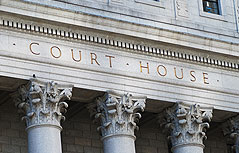Fraud is giving false information or withholding information in order to make a gain or avoid liability. If you have been accused of fraud it is essential to seek the best quality legal advice from specialist fraud solicitors as soon as possible from a firm with experience in this complex and growing area.
Our team of fraud solicitors work diligently to ensure the legal process is followed, rights are protected, and appropriate actions are taken to address fraud.
Fraud cases can vary by type including corporate fraud, criminal fraud, and white-collar fraud. In the case of allegations of fraud made within a business or company, internal investigations can also be conducted. At David Gray, our crime solicitors represent clients across England and Wales, so if you believe you have been accused of fraud , our fraud solicitors are here to offer support and guidance during your case.
Serious fraud offences can be investigated by the Serious Fraud Office (SFO), who fight complex financial crime, other examples of fraud are listed below:
Criminal fraud
Criminal fraud is deliberate deception whereby a criminal tries to secure an unfair or unlawful gain, or to deprive a victim of a legal right, including identity theft, insurance fraud, tax evasion and credit card fraud.
White-collar fraud
Generally referring to financially motivated and non-violent crimes committed by those in business for economic benefit, white-collar fraud can look like fraudulent transactions, embezzlement, money laundering, bribery and corruption and forgery. This type of fraud can be investigated by the police, National Crime Agency or HMCTS.
Covid-19 related fraud
Covid-19 related fraud describes instances where claims made under pandemic-related support schemes are suspected of being fraudulent. These may involve the Furlough Scheme, the Self-Employment Income Support Scheme, or Bounce Back Loans. These investigations may be carried out by HMRC, the police, NCA, or the National Investigation Service (NATIS).
False representation
Fraud by false representation is when an individual dishonestly makes a false representation, knows that the representation is (or might be) not true or misleading, and they do so with the intention of either making a gain for themselves, or to either cause a loss to another or expose another to a risk of loss.
Common examples of fraud by false representation include stealing from an employer, falsifying details to obtain a credit card, selling assets that do not exist or are not yours to sell, or giving false information on a mortgage application form.
Failing to disclose information
Fraud by failing to disclose information occurs when an individual does not disclose information to another person, despite having a legal duty to do so, with the intentions of these actions being to make a personal gain or to cause a loss for another. A legal duty to disclose information can include duties under both written and oral contracts.
An example of fraud by failing to disclose information would be making an insurance claim but withholding key information from your insurers regarding the circumstances, which could impact your claim.
Abuse of position
Fraud by abuse of position occurs when an individual who occupies a position of trust (such as a business directors, partners, trustees, or management) in which they are expected to safeguard, or not to act against, the financial interests of another person, abuses that position. They act dishonestly with the intent of personal gains or to cause a loss for another. Fraud by abuse of position can also be as a result of omission as opposed to an act.
Investigations which involve fraud allegations can be highly complex, stressful, and sometimes span over multiple years. As a result, it is important for you to seek legal advice from specialist fraud solicitors as soon as you can after allegations of fraud and corruption are made. Our team of experienced fraud solicitors can relieve this stress by supporting you throughout every stage of the process, from initial investigations through to police interviews and court if necessary.
Our award-winning specialist fraud lawyers can support you from initial investigations through to interviews and court if necessary. Our team of fraud solicitors can also assist with account freezing orders, restraint orders and proceeds of crime.
Get in touch with our fraud lawyers at David Gray by calling us on 0191 232 9547, or fill in our contact form to find out how our specialist team can support you.
 Skip to content
Skip to content



